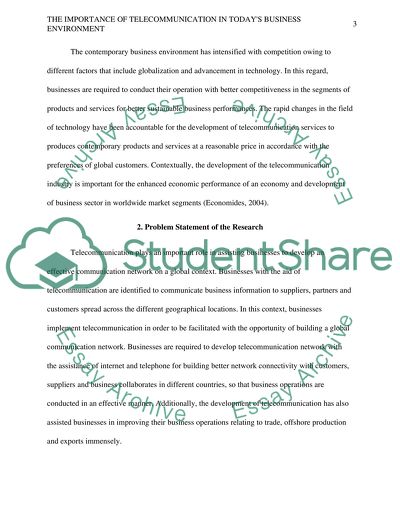Cite this document
(“The Importance of Telecommunication in Today's Business Environment Research Paper”, n.d.)
The Importance of Telecommunication in Today's Business Environment Research Paper. Retrieved from https://studentshare.org/information-technology/1653909-the-importance-of-telecommunication-in-todays-business-environment
The Importance of Telecommunication in Today's Business Environment Research Paper. Retrieved from https://studentshare.org/information-technology/1653909-the-importance-of-telecommunication-in-todays-business-environment
(The Importance of Telecommunication in Today'S Business Environment Research Paper)
The Importance of Telecommunication in Today'S Business Environment Research Paper. https://studentshare.org/information-technology/1653909-the-importance-of-telecommunication-in-todays-business-environment.
The Importance of Telecommunication in Today'S Business Environment Research Paper. https://studentshare.org/information-technology/1653909-the-importance-of-telecommunication-in-todays-business-environment.
“The Importance of Telecommunication in Today'S Business Environment Research Paper”, n.d. https://studentshare.org/information-technology/1653909-the-importance-of-telecommunication-in-todays-business-environment.


